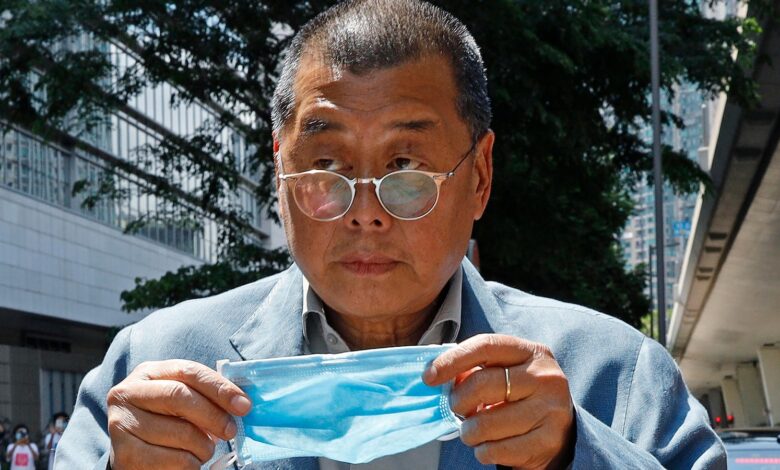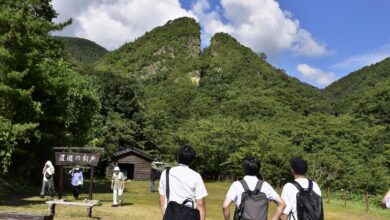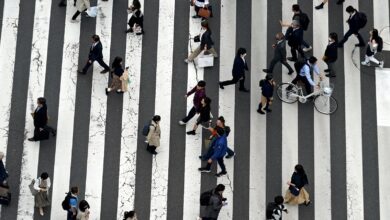Hong Kong activist Jimmy Lai denies he asked a newspaper colleague to draft list of sanction targets

HONG KONG — Former publisher Jimmy Lai denied that he asked a colleague to draft a list of potential sanction targets in his second day of testimony Thursday at his landmark national security trial in Hong Kong.
The 77-year-old founder of the now-shuttered Apple Daily pro-democracy newspaper is being tried on charges of colluding with foreign forces to endanger national security and conspiring with others to issue seditious publications. He was arrested in 2020 in a political crackdown following massive anti-government protests in 2019. If convicted, he faces up to life in prison.
The testimony highlighted WhatsApp conversations between Lai and Apple Daily’s ex-associate publisher Chan Pui-man. She was one of six former Apple Daily executives who pleaded guilty to conspiring with Lai to call for sanctions or a blockade or to engage in other hostile activities against Hong Kong or China.
Lai’s lawyer Steven Kwan showed the messages in court after Chan earlier in the trial said that Lai had suggested the newspaper prepare a sanction list after then-President Donald Trump signed a directive seeking to punish those the U.S. government determines have helped to curtail Hong Kong’s civil liberties.
Lai said Thursday he did not write that message and had just copied and pasted the text he received from a person he suspected was connected with the White House. He said he did not read the full text thoroughly before forwarding it. He said the text “sounds so foreign to me.”
Kwan said Lai sent the same message to several pro-democracy politicians, including Lee Wing-tat. Asked whether he intended to ask Lee to work up such a list, Lai answered “that would be ridiculous.”
After the security law was enacted in June 2020, the Trump administration imposed sanctions on Hong Kong officials, accusing them of cooperating with Beijing’s effort to undermine autonomy and crack down on freedom in the city.
Authorities have used the law to prosecute Lai and other leading activists. Under the threat of the law, dozens of civil society groups disbanded and some other activists were forced into self-exile. Apple Daily closed in 2021 following the arrests of some of its senior managers.
Critics say the drastic political changes reflect the freedoms promised to be kept intact in the former British colony when it returned to Chinese rule in 1997 were shrinking. But Beijing and Hong Kong governments said the law restored the city’s stability following the 2019 protests.
The court also heard Lai had reminded his staff working on international news not to go against Trump in 2020 when they were hoping Trump would do something to stop the national security law. Lai said he did not interfere with the way those journalists worked until the law loomed.
On Wednesday, asked how he thought Trump could help, Lai said “a call to China, a call to Xi Jinping, whatever,” referring to the Chinese president. He said his newspaper would not be able to survive under the law but he never communicated with Trump.
The trial will continue on Friday.






